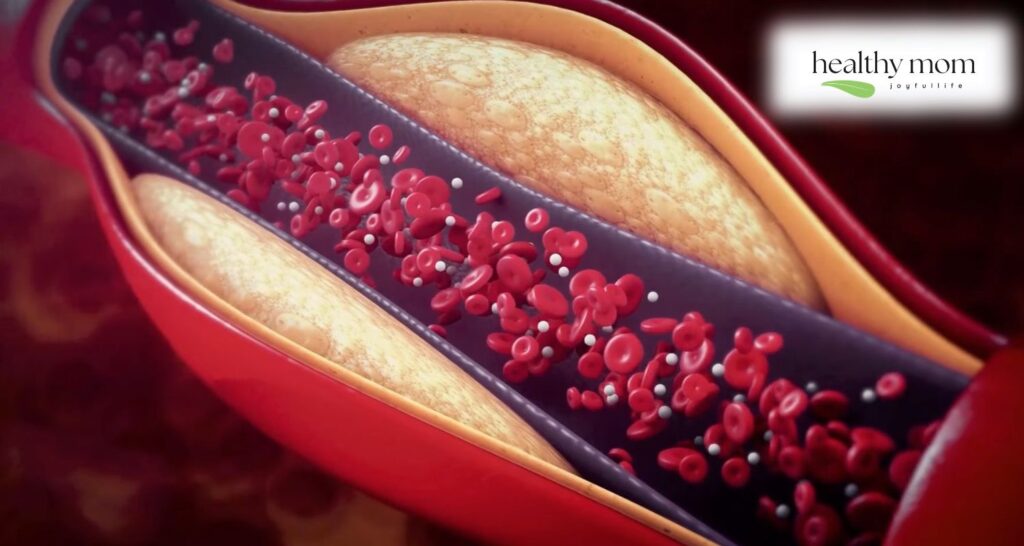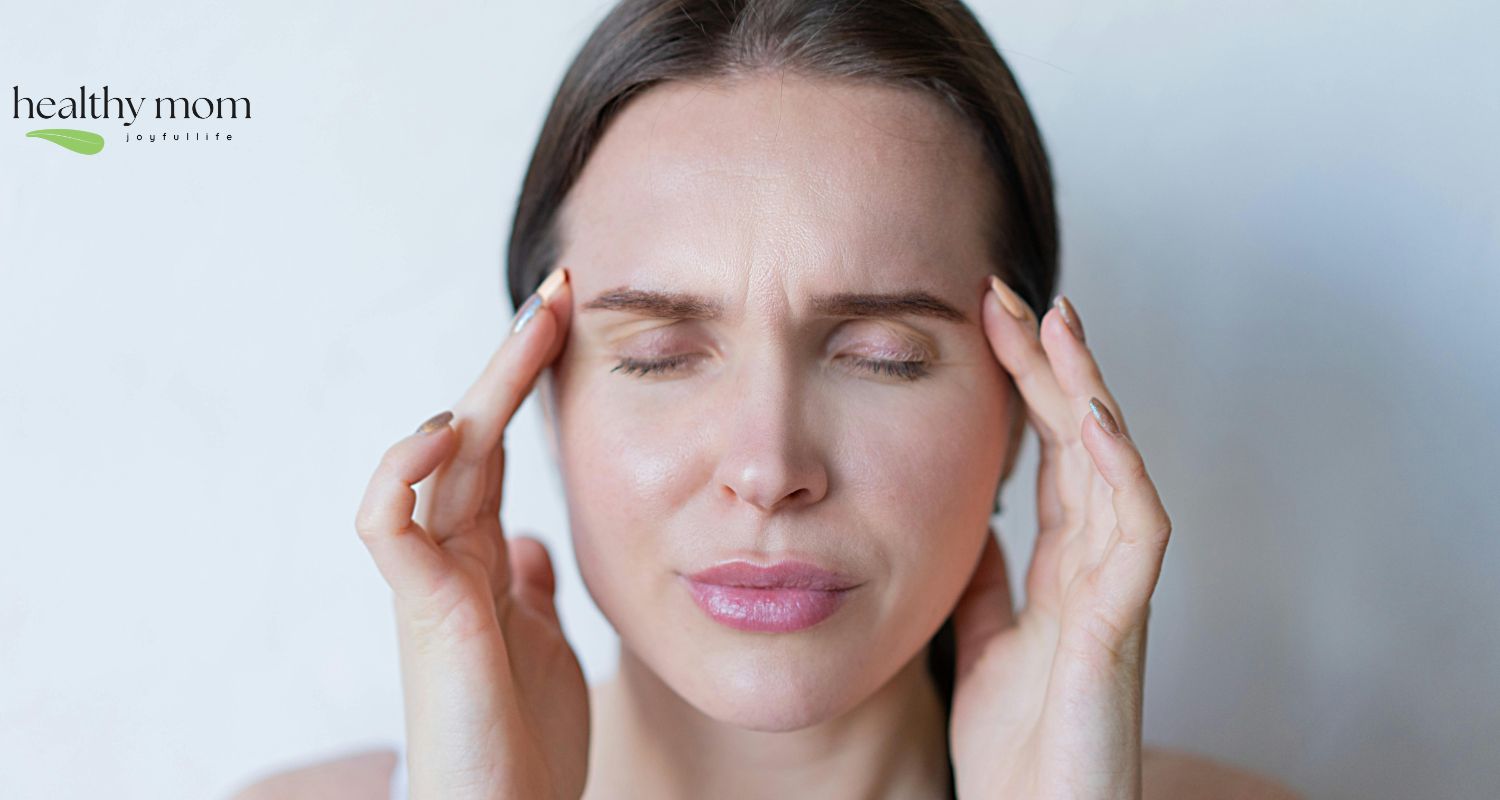Introduction
High cholesterol is a common health issue affecting millions of people worldwide. It’s often referred to as a “silent” condition because it doesn’t always present noticeable symptoms. On the other hand, headaches are a widespread problem, affecting people of all ages and backgrounds. But is there a connection between the two? Can high cholesterol cause headaches? In this article, we will explore the relationship between high cholesterol and headaches, delving into the science behind it and providing practical advice for managing both conditions.

Understanding Cholesterol
Cholesterol is a waxy, fat-like material present in every cell of the body. It is vital for the production of hormones, vitamin D, and compounds that aid in food digestion. However, too much cholesterol in the blood can lead to serious health problems.
Types of Cholesterol: LDL vs. HDL
Cholesterol travels through the bloodstream in lipoproteins. Low-density lipoprotein (LDL) is often labeled as “bad” cholesterol because it can build up in the walls of arteries, making them hard and narrow. High-density lipoprotein (HDL), on the other hand, is known as “good” cholesterol because it helps remove other forms of cholesterol from the bloodstream.
Causes of High Cholesterol
High cholesterol can be caused by a variety of factors including poor diet, lack of exercise, obesity, smoking, excessive alcohol consumption, and genetics. Certain medical conditions such as diabetes and hypothyroidism can also contribute to high cholesterol levels.
Types of Headaches
Primary Headaches
These include migraines, tension headaches, and cluster headaches. They are not caused by another medical condition but by overactivity of or problems with pain-sensitive structures in your head.
Secondary Headaches
These are a symptom of a disease that can activate the pain-sensitive nerves of the head. Any number of conditions may cause secondary headaches, including sinus infections, neck injuries, and, in some cases, high cholesterol.
Common Causes of Headaches
Headaches can be triggered by a variety of factors such as stress, poor posture, dehydration, and dietary habits. In some cases, underlying health issues like high blood pressure or high cholesterol can also play a role.
Cholesterol and Cardiovascular Health
Role of Cholesterol in Heart Health
Cholesterol is vital for building cells and producing hormones, but an excess of it can be detrimental. High levels of LDL cholesterol can lead to the formation of plaques in the arteries, a condition known as atherosclerosis, which can increase the risk of cardiovascular diseases.
How High Cholesterol Affects the Body
When LDL cholesterol levels are high, it can deposit on the walls of the arteries, leading to plaque buildup. This can restrict blood flow and result in complications like heart attacks and strokes.
Cardiovascular Diseases Linked to High Cholesterol
Diseases such as coronary artery disease, peripheral artery disease, and stroke are closely linked to high cholesterol levels. These conditions can have a variety of symptoms, including chest pain, shortness of breath, and even headaches.
The Link Between High Cholesterol and Headaches
Can High Cholesterol Directly Cause Headaches?
There is no direct evidence that high cholesterol causes headaches. However, high cholesterol can lead to conditions that might cause headaches. For example, high cholesterol can result in high blood pressure or cardiovascular diseases, both of which are associated with headaches.
Indirect Effects of High Cholesterol on Headache Occurrence
When high cholesterol contributes to high blood pressure or atherosclerosis, it can indirectly lead to headaches. Reduced blood flow to the brain due to narrowed or blocked arteries can trigger headaches, particularly if the brain does not receive enough oxygen.
Studies and Research Findings
Several studies have explored the connection between high cholesterol and headaches. While there isn’t a definitive link, research suggests that individuals with high cholesterol may experience headaches due to related cardiovascular conditions.
Symptoms of High Cholesterol
Recognizing High Cholesterol Without Testing
High cholesterol usually has no symptoms until it leads to more serious conditions like heart disease. Some people might experience symptoms related to these conditions, such as chest pain or shortness of breath.
Physical Signs and Symptoms
In rare cases, physical signs like xanthomas (yellowish deposits of cholesterol under the skin) or arcus senilis (a white ring around the cornea) can indicate high cholesterol levels.
Symptoms of Headaches
Different Types of Headaches and Their Symptoms
Migraine headaches can cause intense, throbbing pain often accompanied by nausea and sensitivity to light and sound. Tension headaches are usually characterized by a dull, aching sensation all over the head. Cluster headaches cause severe, burning pain, typically around one eye.
When to See a Doctor
If you experience frequent or severe headaches, it’s important to consult a doctor. This is especially crucial if your headaches are accompanied by other symptoms like vision changes, difficulty speaking, or weakness on one side of the body.
Diagnosing High Cholesterol
Medical Tests for Cholesterol Levels
A lipid panel is a blood test that assesses levels of total cholesterol, LDL cholesterol, HDL cholesterol, and triglycerides. Regular testing is important, especially if you have risk factors for high cholesterol.
Regular Check-Ups and Screenings
Routine health check-ups can help monitor cholesterol levels and assess your risk for cardiovascular diseases. It’s advisable to get your cholesterol checked every 4-6 years, or more frequently if you have risk factors.
Diagnosing Headaches
Methods for Diagnosing Headache Types
Diagnosing the type of headache involves a thorough medical history and physical examination. In some cases, imaging tests like CT scans or MRIs may be used to rule out other conditions.
Importance of Medical History and Examination
Understanding the patient’s medical history and symptoms is crucial for accurate diagnosis and treatment. This includes knowing about the frequency, duration, and triggers of headaches.
Preventing High Cholesterol
Lifestyle Changes to Reduce Cholesterol
Adopting a healthy lifestyle can significantly lower cholesterol levels. This entails maintaining a balanced diet, engaging in regular physical activity, and steering clear of smoking.
Dietary Recommendations
It’s important to limit the intake of foods that are high in saturated and trans fats. Instead, focus on consuming fruits, vegetables, whole grains, lean proteins, and healthy fats like those found in nuts and olive oil.
Exercise and Physical Activity
Regular physical activity can help lower cholesterol and improve overall heart health. Aim for at least 30 minutes of moderate-intensity exercise most days of the week.
Preventing Headaches
Tips for Avoiding Headaches
Staying hydrated, maintaining good posture, managing stress, and getting enough sleep can help prevent headaches. It’s also important to identify and avoid personal headache triggers.
Lifestyle Changes and Stress Management
Incorporating relaxation techniques such as yoga, meditation, and deep breathing exercises can reduce stress and the likelihood of headaches.
Treating High Cholesterol
Medications and Therapies
Statins are commonly prescribed to lower LDL cholesterol. Other medications include bile acid sequestrants, cholesterol absorption inhibitors, and PCSK9 inhibitors.
Natural Remedies
Some natural remedies, like consuming omega-3 fatty acids,
soluble fiber, and plant sterols, can help manage cholesterol levels. However, these should be used in conjunction with, not as a replacement for, medical treatments.
Long-Term Management
Managing high cholesterol is a lifelong commitment. Regular follow-ups with healthcare providers, maintaining a healthy lifestyle, and adhering to prescribed treatments are essential.
Treating Headaches
Over-the-Counter and Prescription Medications
Pain relievers such as ibuprofen and acetaminophen can help with headaches. For more intense headaches, you might need prescription medications.
Alternative Therapies
Acupuncture, chiropractic care, and biofeedback are alternative therapies that some people find effective for managing headaches.
Lifestyle Adjustments
Regular sleep patterns, balanced diet, and avoiding known headache triggers can help manage and reduce the frequency of headaches.
Living with High Cholesterol
Managing Cholesterol Levels Day-to-Day
Incorporate cholesterol-lowering habits into your daily routine, such as choosing heart-healthy foods, being active, and avoiding tobacco smoke.
Support and Resources
Joining support groups or seeking advice from healthcare providers can provide guidance and encouragement. Online resources and mobile apps can also help track your cholesterol levels and progress.
Living with Chronic Headaches
Coping Strategies
Developing a headache management plan with your doctor can make living with chronic headaches more manageable. This might include a combination of medications, lifestyle changes, and alternative therapies.
Support Systems and Resources
Support groups and counseling offer emotional support and practical guidance. Keeping a headache diary can also help identify triggers and track treatment effectiveness.
Conclusion
While high cholesterol itself is not a direct cause of headaches, the conditions it can lead to, such as high blood pressure and cardiovascular diseases, may contribute to headache occurrences. It’s crucial to manage both high cholesterol and headaches through a combination of lifestyle changes, medical treatments, and preventive measures. In doing so, you can enhance your general well-being and life quality.
FAQs
- Can high cholesterol cause migraines?
While high cholesterol is not a direct cause of migraines, it can contribute to conditions like high blood pressure that might trigger migraines. - Are there specific foods that can trigger headaches in people with high cholesterol?
Foods high in processed sugars, caffeine, and alcohol can trigger headaches. Additionally, high-fat foods can impact cholesterol levels and overall health. - How frequently should I have my cholesterol levels tested?
It’s recommended to get your cholesterol checked every 4-6 years, or more frequently if you have risk factors such as a family history of high cholesterol or heart disease. - What lifestyle changes can help lower my cholesterol?
Eating a heart-healthy diet, exercising regularly, quitting smoking, and reducing alcohol intake can all help lower cholesterol levels. - Can lowering cholesterol levels help reduce headaches?
Indirectly, yes. By lowering cholesterol and improving cardiovascular health, you may reduce the risk of conditions like high blood pressure that can cause headaches.

